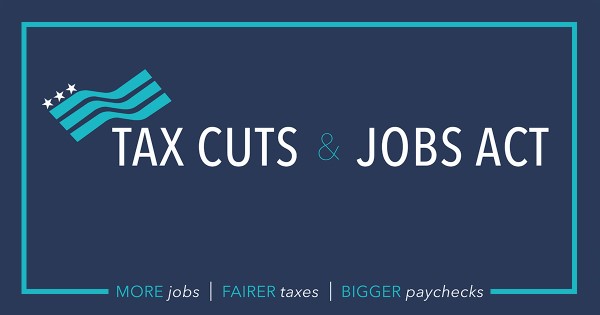How Will the New Tax Law Affect Affluent Individuals?

On Saturday, December 3, the Senate passed its version of the Tax Cuts and Jobs Act. The House passed its version of the bill on November 16. This bill, which contains significant alterations of the U.S. tax system, is the most drastic tax reform measure in more than 30 years and will affect virtually all taxpayers.
A conference committee from the House and Senate will be meeting to “reconcile” their versions of the bill before sending it to President Trump for his signature, which will likely happen before the end of the year. If signed into law, these changes would take effect on January 1, 2018.
The Tax Cuts and Jobs Act contains many proposed changes for both individuals and businesses, as well as international tax reform. Below is an outline of the major provisions that would impact high-net-worth (HNW) individuals in particular.
- Because of anticipated lower tax rates after 2017, many tax preparers are recommending accelerating deductions into 2017 and deferring income to 2018, wherever possible.
- Estate Tax:
- Both the House and Senate versions of the bill would essentially double the estate tax exemption to $11.2 million beginning in 2018.
- The House’s version repeals the estate tax after 2024, but the Senate’s version leaves it intact.
- Changes for homeowners:
- Real estate taxes:
- The Senate bill eliminates the deduction of all state and local taxes, which includes real estate tax. The House version allows a deduction up to $10,000, which would still have a significant impact on HNW individuals.
- Exclusion of gain on sale of primary residence:
- Length of time having lived in home – The seller would need to have lived in the home five of the previous eight years at the time of sale (up from the current requirement: two of the previous five years) to take advantage of the exclusion.
- The House version also includes a phase-out of the gain exclusion, which would wipe out the benefit completely for many HNW individuals if included in the final bill. The Senate’s version does not provide for a phase-out.
- Real estate taxes:
- Itemized deductions/AMT:
- Alternative minimum tax (AMT). The AMT limits the extent to which high-income taxpayers can take advantage of certain tax benefits. For instance, many itemized deductions are added back to calculate tax liability.
- The House’s version of the bill repeals the AMT completely. If repealed, this would be a substantial benefit for our clients.
- The Senate’s version keeps the AMT intact. Although the Senate is proposing a 30% increase to the exemption (i.e., income threshold), the impact to HNW individuals would be minimal. The exemptions being proposed by the Senate are $70,300 for single taxpayers and $109,400 for married taxpayers filing jointly.
- Currently, overall itemized deductions are limited for high-income taxpayers. This limitation would be eliminated.
- Alternative minimum tax (AMT). The AMT limits the extent to which high-income taxpayers can take advantage of certain tax benefits. For instance, many itemized deductions are added back to calculate tax liability.
Because our clients’ individual situations are complex and have many moving parts, there is no one-size-fits-all solution when it comes to tax planning. It is imperative to work with a qualified advisor to evaluate and develop an appropriate strategy. Please contact me or a member of your JDJ team for assistance as you begin discussions with your tax preparers and advisors.



















